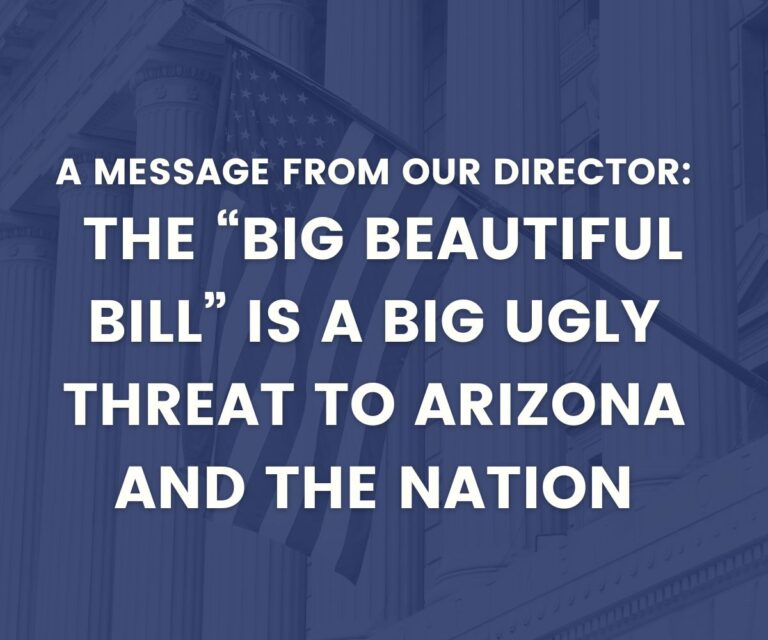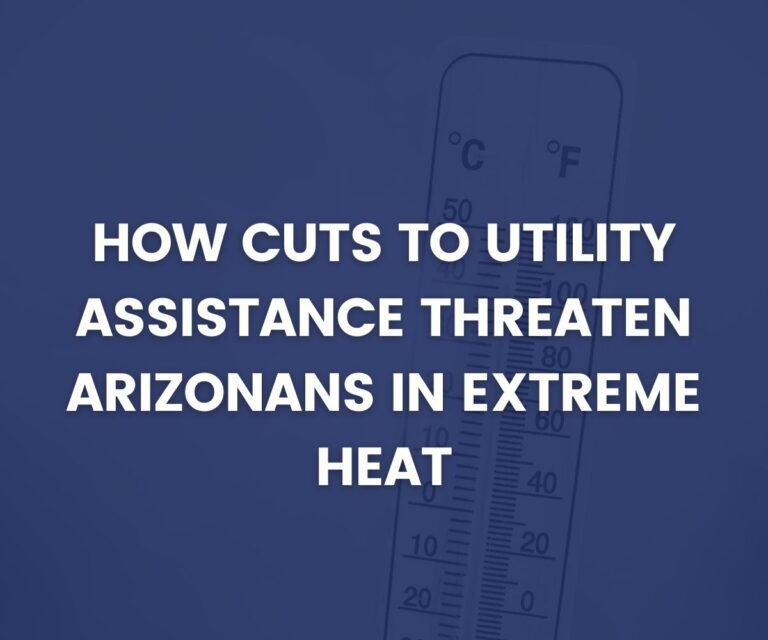New Tool Illustrates Unexpected Qualities and Contributions of Arizona Immigrants
Though common narratives suggest that immigrants arrive in the United States with limited English skills, the opposite is true according to 2021 American Community Survey (ACS) five-year data from the U.S. Census Bureau. Nearly three-quarters (74 percent) of Arizona immigrants either speak English well, very well, or only English per the ACS data. In fact, 17 percent – nearly 160,000 Arizona immigrants – only speak English. While some immigrants will need to learn new language skills after arriving in the United States, the vast majority already have a firm English language foundation. To learn more, the AZCenter’s partner, the Immigration Research Initiative (IRI), launched a new tool that enables the public to view key data points about immigrants in all 50 states, including Arizona.
Another misconception is that many immigrants only come from Mexico and Latin America. Though the country of origin for 54 percent of Arizona immigrants is Mexico, none of the other top five countries share a land border with Arizona. Out of Arizona’s immigration population of nearly 930,000 residents, over 42,000 immigrants (5 percent) arrived from India, and nearly 41,000 (4 percent) came from Canada. Other popular countries of origin include the Philippines (3 percent), China (2 percent), and Vietnam (2 percent). Though historically, immigration in Arizona has been most closely associated with migration from Mexico, this data illustrates that other countries, especially those in Asia, are an important piece of the picture.
In terms of income, immigrants in Arizona are overrepresented in low-wage jobs and underrepresented in middle and upper-wage jobs compared to U.S.-born workers. IRI defines low-wage as earning less than two-thirds of the national median income, middle-wage as two-thirds to double the median, and upper-wage as more than double the median. That means that people in low-wage jobs earn less than $35,000 for full-time, year-round work. Middle-wage earners bring in $35,000 to $104,000, and upper-wage earn over $104,000.
More Arizona immigrants actually work in middle and upper-wage professions than low-wage jobs. Of the working immigrant population, 48 percent work in the middle-wage and 12 percent work in the upper-wage category compared to 40 percent in the low-wage category. Looking at the U.S.-born working population in Arizona, 58 percent work in middle-wage, 15 percent in high-wage, and 28 percent in low-wage jobs. This data illustrates that more work must be done to enable immigrants to learn the skills to qualify for other types of employment in addition to low-wage work. Despite being disproportionately concentrated in low-wage professions, Arizona immigrants contribute $69 billion to our state’s economy, which amounts to 16 percent of the state’s total gross domestic product.
Immigrants choose to come to Arizona for a variety of reasons. They may face persecution in their home country, seek to pursue new economic opportunities, or join family already residing in the United States. Or in the case of our northern neighbors in Canada, can we blame them for wanting to trade in harsh Canadian blizzards for Arizona’s mild winters? Arizona is fortunate to benefit from so many people around the world who have brought their knowledge and unique cultures to the Grand Canyon State.
As we move further into the Twenty-First Century, immigrant workers will continue to fuel our state’s economy and help us tackle difficult problems.



